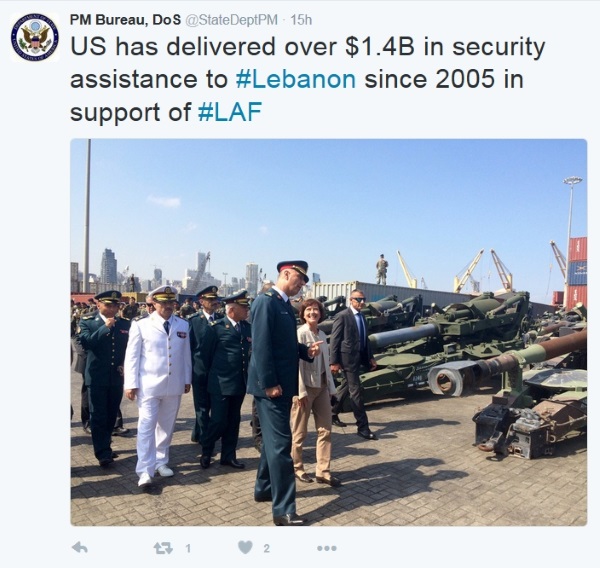How do you characterize a population as a people? Most of us would say that a people has some combination of language, religion, culture, place of origin, and genetic makeup, and that its members identify with a historical narrative that describes how they came to be.
The Jewish people is a paradigm case of a people, with a unique language and religion, a definite origin, clearly distinguishable genetics, and a historical narrative spanning thousands of years that is probably the most powerful story in much of the civilized world. This is why it is so typically chutzpadik for Palestinians to argue that there is only a Jewish religion and not a Jewish people.
The Palestinians do not have a unique religion, language, genetic identity, or place of origin – unless you count having an ancestor who lived in Mandate Palestine for at least two years as establishing rootedness there. But they have a historical narrative with which they very strongly identify.
It is a relatively new narrative, having originated in the mid-20th century as a reaction to the establishment of the Jewish state. It is to a great extent false – there is no long-term ‘Palestinian’ presence in the land of Israel (claims going back to biblical times are ludicrous, and few ‘Palestinians’ can trace their lineage in the land prior to about 1830; most are descended from 20th century migrants). Their story about their dispossession by the Zionists is also to a great extent false and self-serving. But none of this matters.
What does matter is that virtually all Palestinians believe the narrative, and it is perfectly designed to combine with the features of the Arab and Muslim culture of the Palestinians in such a way as to create endless, insoluble conflict with the Jewish state.
The narrative tells of a proud culture rooted in the land, dispossessed by foreign invaders who have no connection with it. It tells about humiliation of the Palestinian people, their wealth and property taken from them. It tells about a Muslim land being ruled by infidels, or almost worse, by Jews, Mohammad’s historic enemies whose inferior role is demanded by the Qur’an. It tells about Arab manhood being insulted by repeated military defeats by the children of pigs and monkeys.
The narrative tells about an intolerable condition, and its collision with Arab culture and Islam can’t be resolved by a compromise which permits the continuation of Jewish sovereignty in any real sense. Any solution acceptable to the Palestinians must include the return of their ‘property’ – that is, the ‘return’ of the descendents of Arab refugees to ‘their homes’. For Muslims, there is also the fact that the entire land, having been ruled at one time by Muslims, is a part of dar al islam and must return to Muslim rule. And of course, no situation in which a Jew is superior to a Muslim in any way is acceptable.
Worse, Arab honor, which was stolen by military defeat and which continues to be taken by the daily humiliations of Israeli security measures, must be regained. This requires equal humiliation and violence against the Jews.
But why can’t the Jews make a similar argument on the grounds that the rights of the Jewish people were abrogated by the Arab conquest of the 7th century? The Palestinians take this threat quite seriously, which is why they insist that there is a Jewish religion but no Jewish people. And it is why they make ridiculous statements like “Palestinians are descended from ancient Canaanites,” “There was no Jewish Temple in Jerusalem,” or “Jesus was a Palestinian.” It is why they are working assiduously to get UNESCO to declare all Jewish historical sites to be Arab or Muslim.
As long as the Palestinian narrative is believed there will be no peaceful two-state solution or any other compromise that allows a Jewish state to continue existing. And as long as Arabs understand that their lost honor needs to be regained there will be no end to murderous outbursts of violence against Jews by Arabs.
These are not things that are in our power to change. There is no way we can educate the Arabs to stop believing their narrative and to start believing ours. No matter how kind we are, how conciliatory, how fair, how just, how many concessions we make, how much economic opportunity we provide, the fundamental problem remains. If you think I’m exaggerating, read this about Palestinians in general, and this about Arab citizens of Israel. If anything, as time goes by, the narrative gets embedded more firmly in the Palestinian psyche.
So does this imply that there is no hope?
Not exactly. There is no hope for a peaceful compromise, true. But there are other ways a conflict between peoples – yes, I think their narrative makes them a people, if not an ancient one – can end. One side or other can prevail, can overpower its enemy to the extent that it gives up the idea that it can win, and stops fighting.
The usual example of this is WWII in which the losers were crushed so badly that they gave up, accepted occupation, and even changed their ways of thinking so as to reject militarism and ultimately became allies of their erstwhile enemies. But there is another example that is much closer to home and might provide a model for a solution that requires somewhat less death and devastation than that wrought by the bombing of Dresden or Hiroshima.
That is the example of the Arab citizens of Israel.
They are not any less committed to the Palestinian narrative. But most of them have come to understand that they are not capable of overthrowing the Jewish state. They lived under military rule from 1948-68, but since then have had the same rights (if not responsibilities) of Israel’s Jewish citizens. The combination of the perception of an overwhelming imbalance of power plus the availability of economic options has not canceled the Palestinian narrative, but has made it possible for them to live peacefully in a Jewish state. What other country in the world can say that it has a 20% Muslim minority that is not a source of violent instability?
The continued docility of our Arab citizens isn’t guaranteed. In order for it to continue, there are several things that are important: they must continue to understand that they will not obtain national rights in the Jewish state, either by violence or political means, although their civil rights will be protected. Israel will remain a Jewish state, not a binational one. The flag and national anthem will not be changed, and there will always be a Jewish right of return, and never an Arab one. The overwhelming imbalance of power must be maintained. But at the same time their rights to equal treatment under the law and their economic opportunities must not be foreclosed.
The same principles apply to the Arabs of the territories, although it is probably not a good idea to suddenly grant them citizenship and hope that they will behave like the Arab citizens from 1948. But we are presently far from establishing the necessary imbalance of power as long as the Fatah and Hamas organizations are operating. They and similar enemies of Israel must be defeated and destroyed as a first step. We wouldn’t tolerate Fatah operating in Tel Aviv, so we should not tolerate it in Ramallah either.
The strategic geography of the land of Israel implies that we cannot give up control of Judea and Samaria and still be capable of defending our nation. That in turn means that we have to deal somehow with its Arab inhabitants. Their dedication to the pernicious Palestinian narrative precludes a Western-style compromise, but if we can decisively end their ability to make war, then maybe their only remaining option – as in the case of the Arab citizens of Israel – will be to live in peace.




